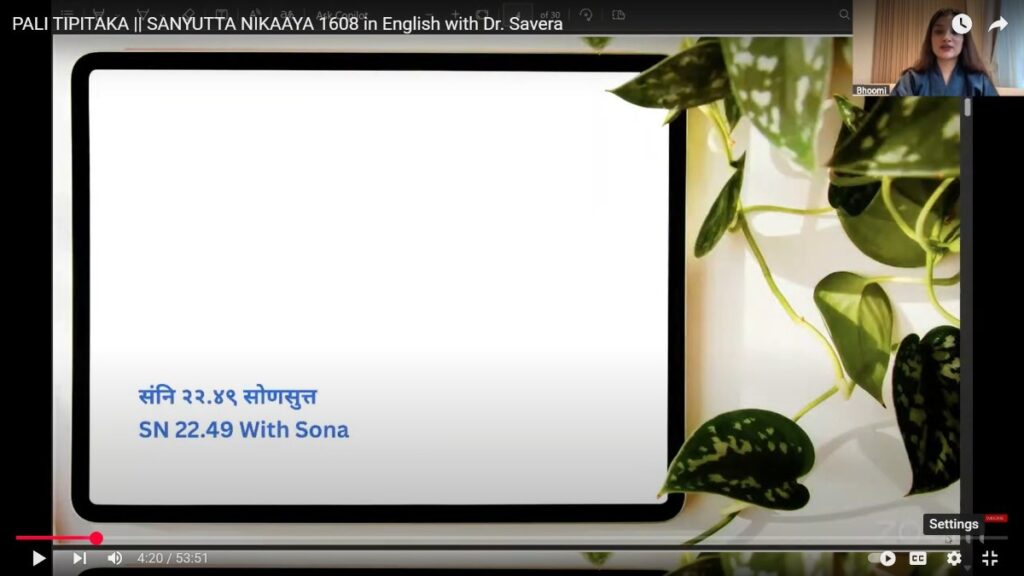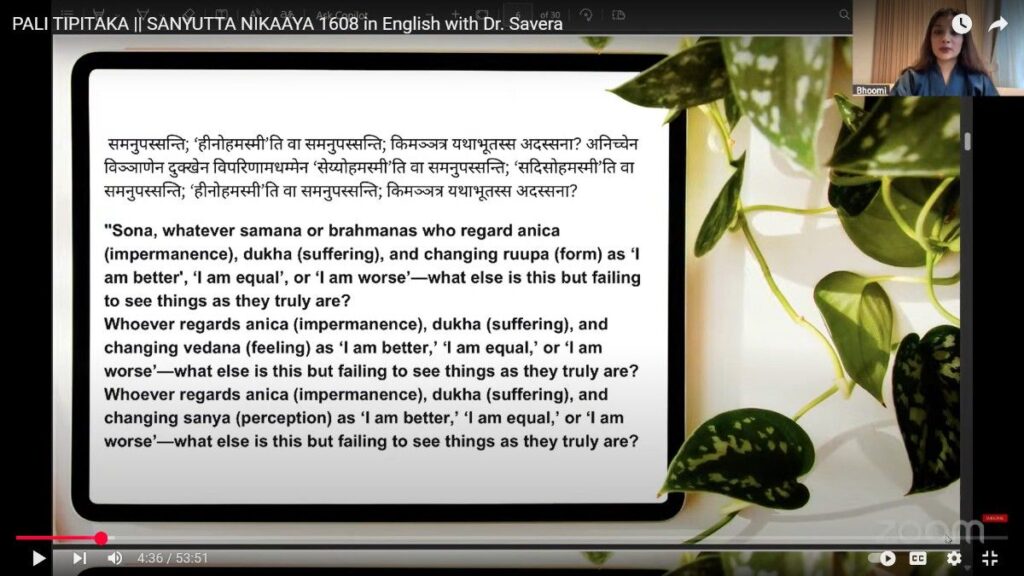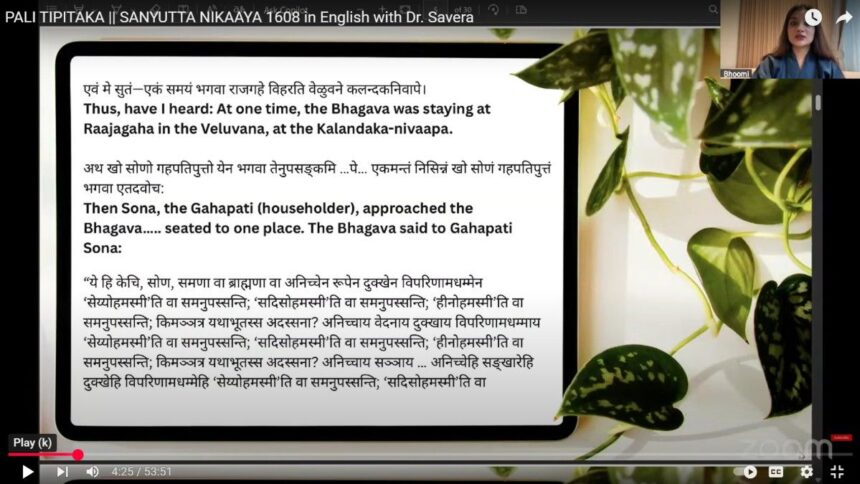Date: 16th August 2025
Location: Online Session
On August 16th, an insightful online session was held on the Saṁyutta Nikāya 22.49, a discourse from the Pali Canon that highlights the Buddha’s wisdom on how clinging to comparisons leads to suffering. The teaching, delivered while the Buddha was residing at Veluvana in Rājagaha, centers around a conversation with the householder Sona.

The Nature of Comparison
In this sutta, the Buddha draws attention to a subtle but powerful trap that spiritual seekers often fall into. Ascetics, Brahmins, and even householders sometimes measure themselves against others by thinking, “I am better,” “I am equal,” or “I am worse.” These judgments are often based on experiences of impermanence (anicca), suffering (dukkha), or transformation in the five aggregates—form (rūpa), feeling (vedanā), perception (saññā), formations (saṅkhāra), and consciousness (viññāṇa).
However, the Buddha explains that such comparisons are rooted not in wisdom but in delusion. They come from attachment to the idea of “self” and from the false belief that one’s worth or progress can be measured by comparing conditioned experiences with those of others.
Seeing Clearly Through Wisdom
True insight, according to the Buddha, arises when one recognizes that all conditioned phenomena are impermanent and without a lasting self. To think in terms of superiority, equality, or inferiority is to remain entangled in ego. The wise instead observe phenomena simply as they are—arising, changing, and ceasing—without clinging or identification.
By letting go of comparison, one cultivates a mind of equanimity and freedom. The Buddha reminds Sona, and through him all practitioners, that liberation does not lie in measuring ourselves against others but in understanding the universal truth of impermanence.

A Timeless Message for Practitioners
This discourse carries a timeless lesson for modern practitioners as well. In a world where competition, social comparison, and self-judgment are common, the Buddha’s teaching serves as a gentle reminder: the path to peace is not about proving oneself better or worse, but about directly realizing the nature of reality.
When one sees with wisdom that everything conditioned is fleeting and not-self, comparison naturally falls away. What remains is clarity, compassion, and the steady progress toward liberation.
Conclusion
The Saṁyutta Nikāya 22.49 reminds us that the true obstacle to inner freedom is not the changing nature of life but the way we cling to it through comparison and ego. By abandoning the notions of being “better,” “equal,” or “worse,” we move beyond the narrow boundaries of self-centered thinking. The Buddha’s wisdom shows that freedom is found not in comparison, but in direct understanding of impermanence and non-self. When we release these mental constructs, the mind settles into clarity and peace, allowing us to live with greater compassion, balance, and genuine liberation.
To Watch Full Video Click Below Link
https://www.youtube.com/watch?v=LFXxzUIthUQ&t=276s




